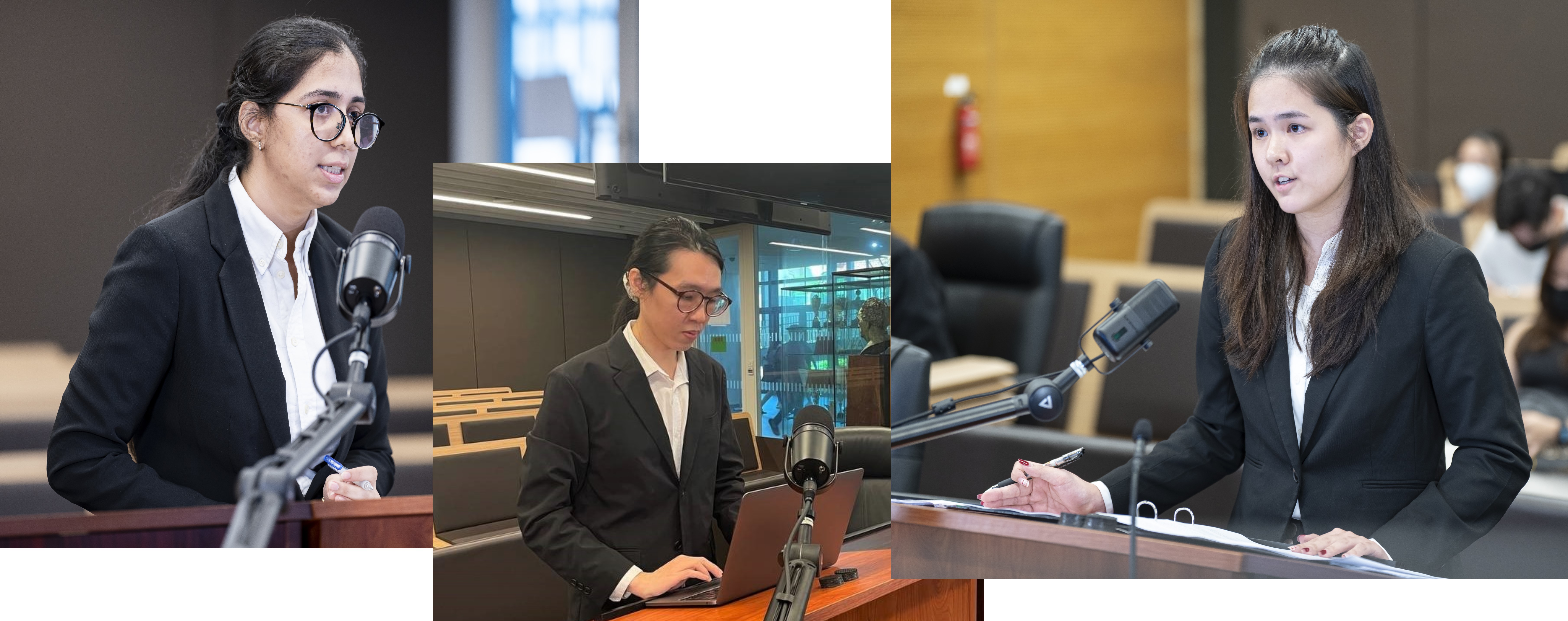
The Singapore Management University (SMU)’s law school has won the 20th Red Cross International Humanitarian Law Moot, held from 9 – 13 March 2022. Conducted virtually this year, the competition was jointly organised by the Hong Kong Red Cross and the Regional Delegation for East Asia of the ICRC, in collaboration with the Chinese University of Hong Kong and the University of Hong Kong.
Prominent judges included The Honourable Madam Justice Carlye Chu, Justice of Appeal of the Court of Appeal of the High Court (Hong Kong), Dr Michael Crowley, experienced legal practitioner and law academic in Western Australia and New South Wales, Professor Sten Idris Verhoeven, law academic and Moot Problem Writer, and Professor Gregory Gordon, Professor at the Chinese University of Hong Kong.
It was SMU’s third finals appearance in this competition, which had around 100 registered teams and 24 qualifying teams from countries across the Asia Pacific vying for the champion title. The team from the SMU Yong Pung How School of Law was represented by Soh Zu Hua (Juris Doctor, Year 2), and LLB students Meher Malhotra (Year 4), and Alyssa Tang Hui Lin (Year 3). They were coached by alumni Kartik Singh (LLB, 2018), Lyndon Seow (LLB, 2020), Tan Bae Huey (LLB, 2020) and Bill Puah Ee Jie (LLB, Year 2, student coach).
The objectives of the Red Cross International Humanitarian Law Moot include raising awareness of international humanitarian issues among law students, enhancing knowledge and application of international humanitarian law (IHL), promoting the spirit of humanity among law students in the Asia-Pacific region, as well as to promote understanding on the International Red Cross and Red Crescent Movement.
The moot problem faced by teams this year revolved around an AI programme developer, who supplied various AI software and drones to a State party to an international armed conflict. It was particularly novel because no such persons had been brought before the International Criminal Court in its history, nor has any case involved the use of AI programmes and drones with fully autonomous targeting capabilities. During the competition, teams tackled questions such as “Can someone be criminally responsible for the acts committed by a fully autonomous weapon system?”.
Team leader Meher Malhotra said, “The problem this year touched on a developing area of the law regarding the liability of a software developer. Given the short time frame, the preparation was arduous. However, with our team’s dedication and hard work, we knew we could do it. We have immense gratitude for our coaches Lyndon, Bae Huey, and Kartik for all their support and for truly believing in us.”
